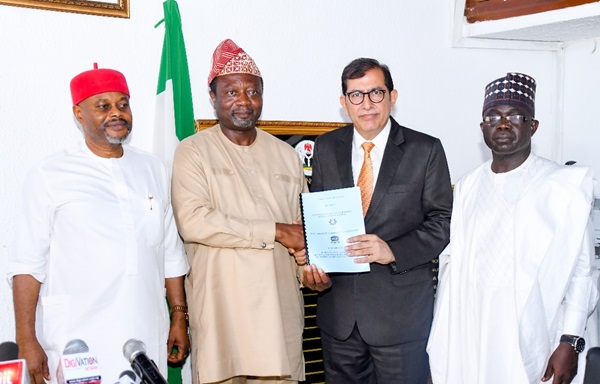
In a significant move towards bolstering postgraduate studies, vocational training and ICT certification in Nigeria, the National Centre for Technology Management (NACETEM) has entered into a memorandum of understanding (MoU) with the academia, private sector and industries.
The Minister of Science Technology and Innovation (STI), Chief Uche Nnaji urged the private sector, public sector and academia to collaborate in driving socio-economic development and empowering citizens. He emphasised the shortage of skilled manpower in Nigeria, encompassing both digital professionals and artisans.
“Looking at Dangote refinery, which employed about 11 thousand artisans, none of them came from Nigeria. They were all imported. A job as small as welding, which we have over one million welders in Nigeria, not one of them has ISO certification,” the minister lamented.
Highlighting the need for immediate action, Nnaji stated, “One of our moves is to set up a hub in six geopolitical zones where we will train and certify welders with ISO certification. If we have enough welders in this country, there will be no need to start importing them. Nigeria loses over N10 billion every year for not training and certifying welders, as a welder is paid about $150 a day”.
He expressed optimism that this collaboration would create an environment where academia, the public sector and the private sector converge to propel the nation forward.
“I am delighted that NACETEM has started the magic by collaborating with the Federal University of Technology Minna, Commit Technology and Nero Logistics to develop skills related to technology. This includes hiring people who are technologically inclined and providing them with certificates. This way, people can work with their computers in Nigeria and earn their salary in dollars,” Nnaji added.
The director of NACETEM, Dr. Olusola Odusanya highlighted the pressing need for skilled professionals in the Nigerian economy. He mentioned that NACETEM’s academy serves as a reservoir for developing skilled individuals capable of getting things done.
“NACETEM has designed a finishing school where we train middle and high-level manpower in the realisation of our mandate. In the job market, 70% of employed individuals are vocationally trained, and we are addressing the potential challenge of a shift from training physical manpower to other systems,” Odusanya emphasised.
He also announced the initiation of new programs, including a master’s programme in nanotechnology, a postgraduate diploma and a master’s degree in digital marketing and blood donor banking.
The vice-chancellor of the Federal University of Technology Minna (FUT), Prof. Faruk Kuta underscored the university’s specialisation in acquiring technological and scientific skills. He emphasised the institution’s focus on developing products for public consumption through knowledge generation.
The collaborative efforts between NACETEM, academia and the private sector are poised to shape a future where innovation, science and technology converge to uplift the lives of citizens and propel Nigeria to new heights in the competitive global landscape.

